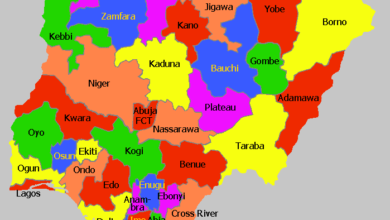Food Sufficiency And Post – Covid -19 Economy

All nations and people have learnt a lesson by hindsight from the ongoing ravaging coronavirus pandemic of the need to be self-sufficient, especially in food production.
Never was it imagined that the world’s economy would shut down as just witnessed in the last two months when nations, states and local government areas closed their borders to neighbours as part of measures to contain the spread of the disease.
In fact, the unimaginable happened as the world momentarily grinded to a halt and its heartbeat almost stopped. A sense of apocalypse filled the Earth.
As individuals were locked .down in their shelters, what mattered most was food for survival. Perhaps for the first time, people and government realized the need for food sufficiency which they must have hitherto taken for granted.
At a point when nothing else mattered than survival, the importance of agriculture becomes all the more evident.
As many governments rose to the challenge and of their social responsibility of providing for the population that has been deprived of livelihoods by the lockdown, food rations were dished out.
Though the rations were merely palliatives, the exercise was a test of how a government and people can hope to survive in hard times.
It is on this note that we highly commend the Akwa Ibom government under the leadership of Governor Udom Emmanuel for the massive response in providing food handouts to the people of the state at the height of the lockdown.
It was indeed a wonder that the government distributed over 200 bags of home grown rice to each of the 31 local governments areas. In addition, some quantity of garri and flour was also distributed as palliatives to assuage the hardship of the lockdown.
A rough calculation indicates that about 10000 bags of rice and the same amount in garri and flour were packaged and freely supplied to the people.
The Governor Emmanuel administration from its inception harped on food sufficiency and agricultural revolution, but the people took it for granted. Perhaps nobody gave his call for food sufficiency much thought, dismissing it as another empty slogan, especially when viewed against the backdrop of agricultural policies of past administrations from the days of Operation Feed the Nation, River Basin Development and others, all of which never ever produced a bag of home grown rice or what have you for anyone to see.
But his efforts in the agricultural sector are paying off handsomely, especially in this lean period of coronavirus epidemic.
It is indeed amazing how his administration dished out such huge stockpile of foodstuffs to the people of Akwa Ibom within a short notice at the onset of the pandemic.
Governor Emmanuel’s agricultural revolution is yielding massive results. Come to think of it, where would Akwa Ibom have got such huge metric tonnes of rice, flour, garri and other grains at this period of the pandemic when all borders have been closed, were it not for the foresight of his food sufficiency programme?
Therefore, in the post-Covid-19 era, agriculture must be made to take its pride of place in the nation’s economy as was the story before the advent of oil. If Akwa Ibom alone could produce such huge quantity of rice as witnessed in the distribution of palliatives, then it should start thinking of exporting to generate foreign exchange.
Nigeria can no longer pay lip service to agriculture. Thank God the President Buhari Administration did set the ball rolling in terms of rice revolution and hopefully the programme would be religiously sustained.
Both the federal and state governments should now get the local councils committed to mandatory agricultural production for local consumption and export. Agriculture should be made the highest employer of labour at all the three tiers of government in the formal sector.
Nigeria has the potentials to becoming a giant in world food production, especially of rice. If Nigeria gets down to it, it could easily surpass the likes of Thailand, Vietnam, Malaysia and the rest in terms of rice production in the post Covid-19 era.
Agriculture will most likely run neck-to-neck with the oil sector in the post-coronavirus economy for Nigeria, state government, communities and individuals.



